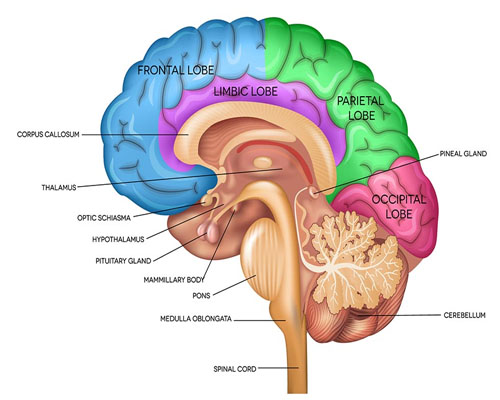Epilepsy Disc Surgery - By Dr. Pravin Ganjre
Medications can control seizures in most people with epilepsy, but they don’t operate for everyone. Nearly 30% of people using the drugs can’t tolerate the side effects. In some cases, brain surgery may be an alternative.
An operation on the brain can manage seizures and enhance your quality of life.
Surgery has 3main purposes:
Remove the region of the brain that affects seizures. Disturb the nerve pathways that seizure movements take through your brain. Implant a device to handle epilepsy.

Who Gets Epilepsy Surgery?
Surgery is only a choice if :
- Your doctor can recognize the region of the brain where the seizures originate, called the seizure focus.
- The section to be removed doesn’t manage a significant function like speech, sensation, or action.
If you meet those criteria, it goes best when :
- Your seizures are damaging.
- Medication doesn’t manage your seizures.
- Medicine side effects are critical and affect your quality of life
- People with other severe medical difficulties, like cancer or heart disease, normally aren’t considered for this treatment.
What Is Epilepsy?
Epilepsy is a disease of the central nervous system, characterized by a violation of the physiological activity of the brain cells. The main manifestation of epilepsy is seizures; the severity, frequency, and nature of the disease can vary significantly.
Focal seizures are caused by abnormal activity at one part of the brain. The seizures appear in the form of sensory disorders, a brief loss of consciousness or involuntary contractions of the muscles of the upper or lower limbs. The seizures develop in response to the pathological activity of the brain and may be accompanied by falling, twitching muscles and involuntary urination. Brain surgery for epilepsy is done to people to reduce or to stop the number of seizures they have. Surgery for epilepsy involves removing the part of the brain which causes the seizures or separating the part of the brain which causes seizures from the rest of the brain.
Epilepsy Surgery and Treatment in Pune
Treatment of epilepsy usually begins with medication. For most patients, the chronic long-term administration of antiepileptic drugs (AEDs) can reliably control the disease and prevent attacks or significantly reduce their frequency. With the ineffectiveness of drug therapy, a possible Epilepsy Disc surgery is considered. The indications for surgery are seizures that occur despite medication. for the treatment of epilepsy is carried out in cases when the source is located outside the areas of the brain responsible for vital functions: speech, motor skills, vision or hearing.
Diagnostic Measures :
Neurological examination
Electroencephalography (EEG). EEG is a graphical recording of the electrical activity of different brain regions. EEG can be performed in the waking state, during sleep, alone or under the influence of a trigger – factor, artificially stimulating seizure activity. Computed tomography of the brain (CT). Before planning brain surgery in Israel, neurosurgeons recommend carrying out a CT test; it lets the neurosurgeon visualize the structure of the brain, as well as to diagnose tumors, hemorrhage, cystic formation, against which the patient may develop seizures.
Magnetic resonance imaging (MRI), both standard and functional. Epilepsy surgery usually requires a functional MRI to determine the areas of the brain that regulate the processes of speech, motor skills, and other critical functions.
Positron emission tomography (PET)
Single photon emission computed tomography (SPECT). Positron emission tomography (PET) is a nuclear imaging technique that creates detailed, computerized pictures of organs and tissues inside the body.
